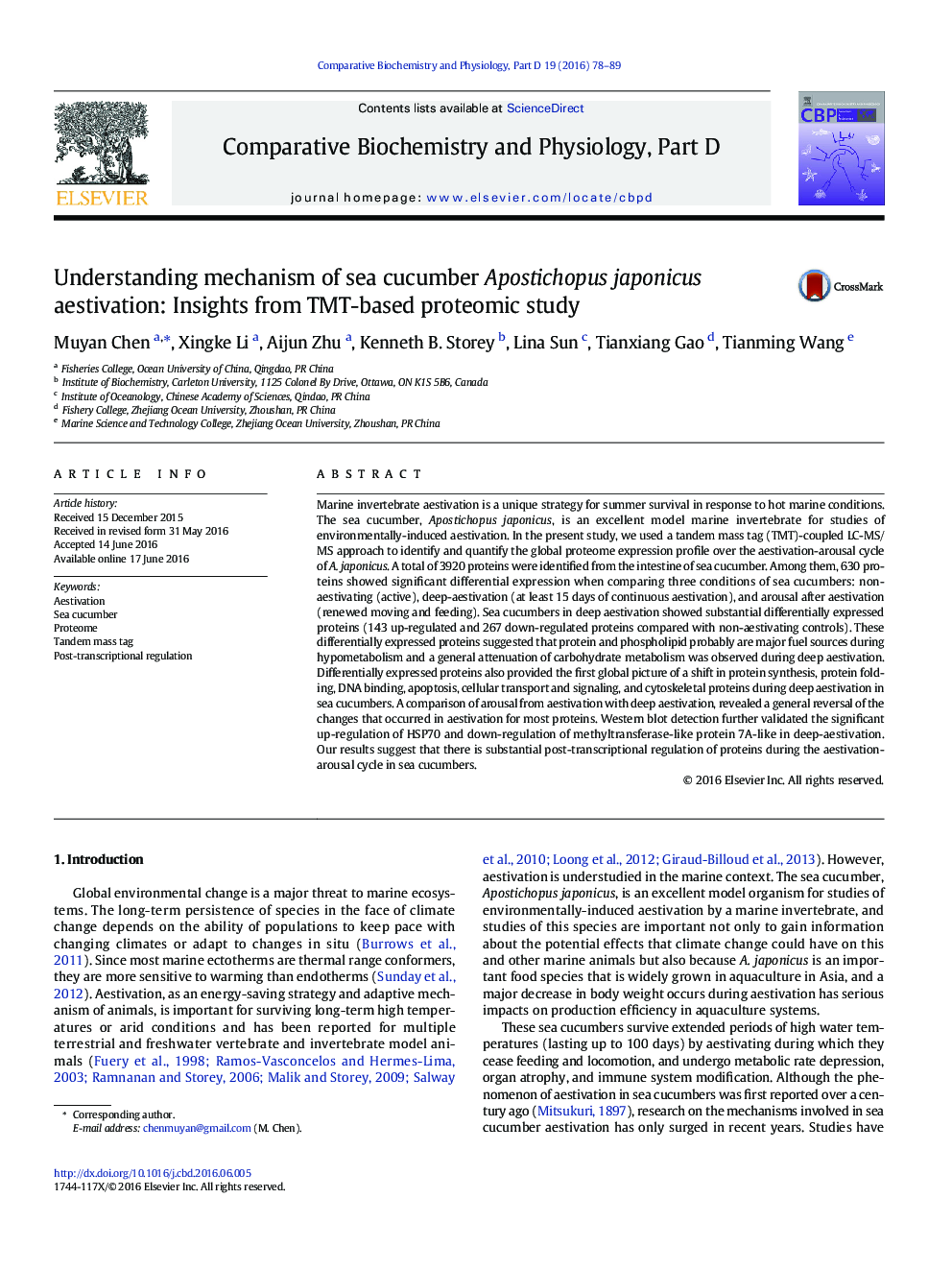| کد مقاله | کد نشریه | سال انتشار | مقاله انگلیسی | نسخه تمام متن |
|---|---|---|---|---|
| 1978495 | 1539316 | 2016 | 12 صفحه PDF | دانلود رایگان |

Marine invertebrate aestivation is a unique strategy for summer survival in response to hot marine conditions. The sea cucumber, Apostichopus japonicus, is an excellent model marine invertebrate for studies of environmentally-induced aestivation. In the present study, we used a tandem mass tag (TMT)-coupled LC-MS/MS approach to identify and quantify the global proteome expression profile over the aestivation-arousal cycle of A. japonicus. A total of 3920 proteins were identified from the intestine of sea cucumber. Among them, 630 proteins showed significant differential expression when comparing three conditions of sea cucumbers: non-aestivating (active), deep-aestivation (at least 15 days of continuous aestivation), and arousal after aestivation (renewed moving and feeding). Sea cucumbers in deep aestivation showed substantial differentially expressed proteins (143 up-regulated and 267 down-regulated proteins compared with non-aestivating controls). These differentially expressed proteins suggested that protein and phospholipid probably are major fuel sources during hypometabolism and a general attenuation of carbohydrate metabolism was observed during deep aestivation. Differentially expressed proteins also provided the first global picture of a shift in protein synthesis, protein folding, DNA binding, apoptosis, cellular transport and signaling, and cytoskeletal proteins during deep aestivation in sea cucumbers. A comparison of arousal from aestivation with deep aestivation, revealed a general reversal of the changes that occurred in aestivation for most proteins. Western blot detection further validated the significant up-regulation of HSP70 and down-regulation of methyltransferase-like protein 7A-like in deep-aestivation. Our results suggest that there is substantial post-transcriptional regulation of proteins during the aestivation-arousal cycle in sea cucumbers.
Journal: Comparative Biochemistry and Physiology Part D: Genomics and Proteomics - Volume 19, September 2016, Pages 78–89